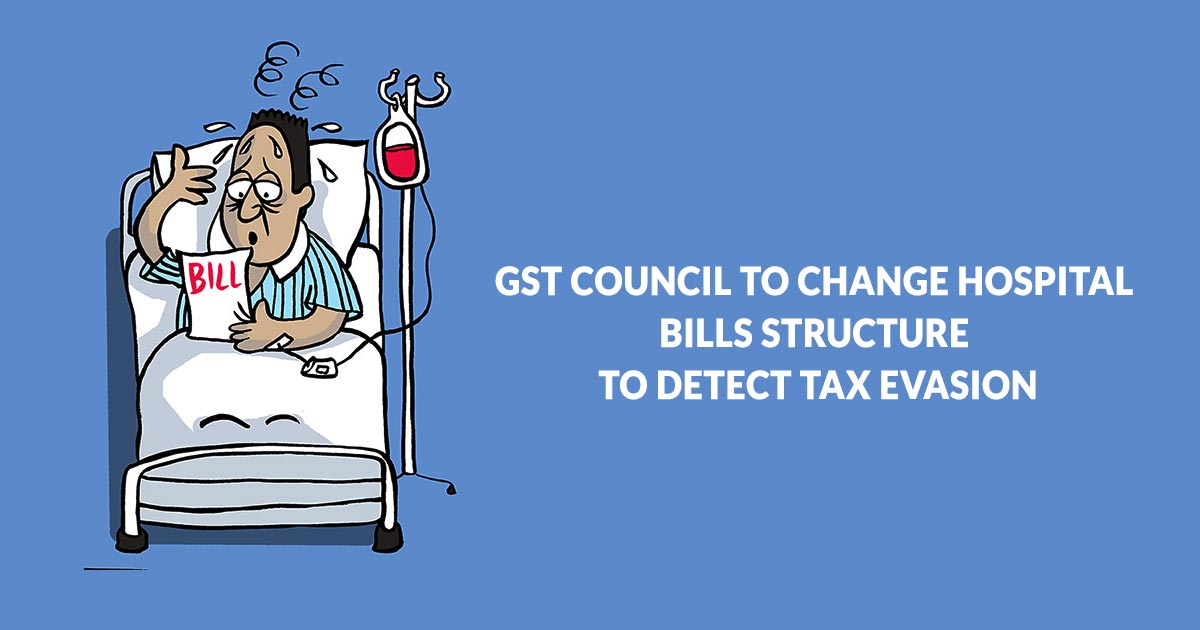To change the hospital bill structure of patients a proposal will be considered by the GST (Goods and Services Tax) to ensure that medical bills have transparency. “It is a proposition that hospitals should have separate bills for medicines and hospital services. It will be better for consumers also”, said a government official.
Cosmetic surgery and transplantation are taxable under GST. Tax authorities are tensed about levying Goods and Services Tax (GST) from patients on medicines. The tax on the bill produced for both the hospitalization charges and medicines is not reaching to the government.
In a few of the cases, it has been seen that the entire payment of the bill is paid by the patient including the medicines on MRP (Max Retail Price) which are purchased by the hospital at a lower cost. Tax authorities came to know about the fraud done in the bills by the big hospitals in the cities like Mumbai.
By separating the bill of hospital charge and medicine will mean that the hospitals which are not yet registered with the GST Authority will now have to register and collect the levy and submit it to the government.
Some hospitals have even demanded that a 5% GST be levied on healthcare services so that they can claim a credit of the input tax paid by them on the goods and services purchased for use by hospitals.
The supply of Goods is associated with the service provider which comes under the category of composite supply, said Tax experts. “The concept of composite supply needs to be used for medical treatments. An explanation can be issued if needed. This concept will also apply to discounted services” said MS Mani, the partner at Deloitte India.
Read Also: GST: Why Jaitley Pressing Centralized Institution For Healthcare & Farm Sector
“Hospitals usually show a composite healthcare service (exemption from GST). This can be the right time to impose a tax of 5% on healthcare services and allow input credit” said Prateek Jain, PwC’s National Leader (Indirect Taxes). Jain also told that if the government wants to separate the medicines in the hospital bills then a suitable change must be made to the law.
